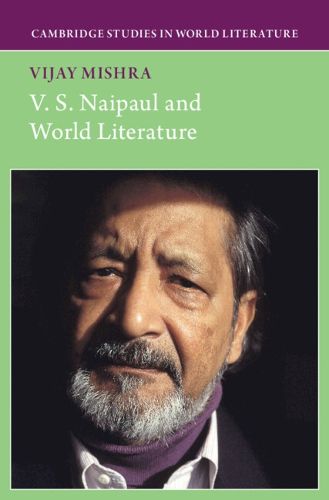Readings Newsletter
Become a Readings Member to make your shopping experience even easier.
Sign in or sign up for free!
You’re not far away from qualifying for FREE standard shipping within Australia
You’ve qualified for FREE standard shipping within Australia
The cart is loading…






V. S. Naipaul is a major and controversial figure in postcolonial and world literature. This book provides a challenging and uncompromisingly honest study that engages with history, genre theory, aesthetics, and global literary culture, with close reference to Naipaul's published and archival material. In his fiction and creative histories, the definition of the modern idea of world literature is informed by the importance of an artistic ordering of perception. Although often expressing ideas that are prejudicial and morally repugnant, there is an honesty in his writings where one finds extraordinary insights into how life is experienced within colonial structures of power. These colonial structures provided no abstract unity to the field of literary expression and ignored vernacular cultures. The book argues that a universal ideology of the aesthetic, transcending time, regions, and languages, provides world literature with a unity which is possible only within a critical universal humanism attuned to heroic readings of texts and cultures.
$9.00 standard shipping within Australia
FREE standard shipping within Australia for orders over $100.00
Express & International shipping calculated at checkout
V. S. Naipaul is a major and controversial figure in postcolonial and world literature. This book provides a challenging and uncompromisingly honest study that engages with history, genre theory, aesthetics, and global literary culture, with close reference to Naipaul's published and archival material. In his fiction and creative histories, the definition of the modern idea of world literature is informed by the importance of an artistic ordering of perception. Although often expressing ideas that are prejudicial and morally repugnant, there is an honesty in his writings where one finds extraordinary insights into how life is experienced within colonial structures of power. These colonial structures provided no abstract unity to the field of literary expression and ignored vernacular cultures. The book argues that a universal ideology of the aesthetic, transcending time, regions, and languages, provides world literature with a unity which is possible only within a critical universal humanism attuned to heroic readings of texts and cultures.